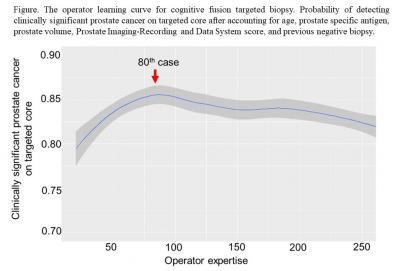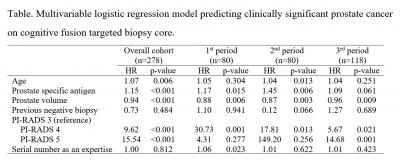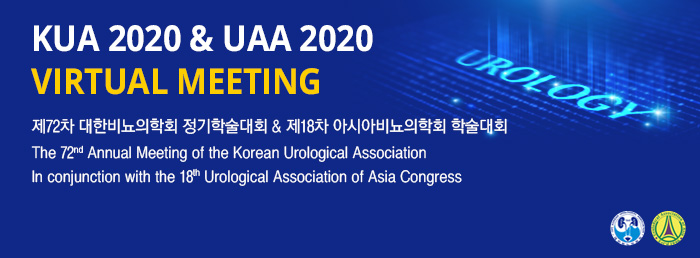|
Cancer - Prostate(구연)
|
(E-132)
|
|
|
The Impact of Operator Expertise of Cognitive Fusion Targeted Biopsy on the Detection of Clinically Significant Prostate Cancer |
| Department of Urology, Pusan National University Yangsan Hospital |
| Dan Bee Lee, Won Hoon Song Seung Ryong Baek, Seung Soo Lee, Jong Kil Nam, Sung-Woo Park |
Objectives: We assessed the impact of operator expertise of cognitive fusion targeted biopsy (CFTB) in the detection of clinically significant prostate cancer (csPCa).
Methods: Among 370 cases of CFTB by a single operator including the first case, 278 cases (Prostate Image-Report and Data System [PI-RADS] score≥3 and CFTB core No.≥2) were analyzed. csPCa was defined as disease with a Gleason score≥7 at CFTB core. A lowess smoothing weighted function was used to graphically assess the effect of operator expertise on the probability of detecting csPCa at CFTB core, after accounting for all confounders. In addition, multivariable logistic regression analyses were done in three groups by period. Covariates consisted of age, prostate-specific antigen, prostate volume, PI-RADS score, and previous negative biopsy.
Results: The overall csPCa detection rate was 39.6% for CFTB. On the learning curve, an increase in the probability of detecting csPCa with the number of procedures performed was observed after accounting for all confounders. Break point can be established at 80th case.(Figure) On multivariable logistic regression analysis in initial 80 cases, operator expertise was significantly associated with a higher probability of csPCa detection in CFTB cores (odds ratio 1.06; p = 0.023).(Table) When the same analyses were repeated for next two period, operator expertise was not an independent predictor of csPCa detection.
Conclusion: We demonstrated that operator expertise for CFTB was significantly associated with detection rates for csPCa during initial 80 cases. |
  |
|
keywords : Prostate biopsy, Magnetic resonance imaging, fusion biopsy |
|

